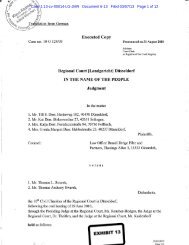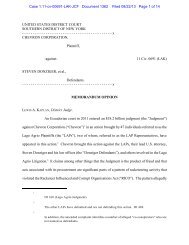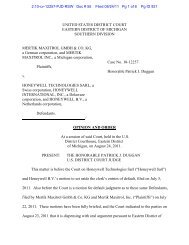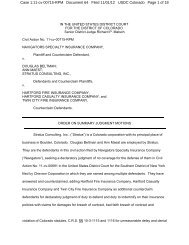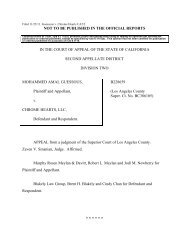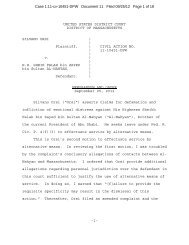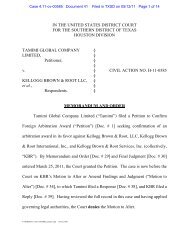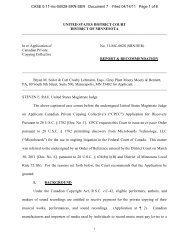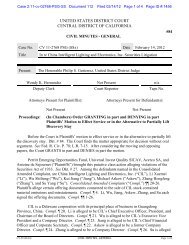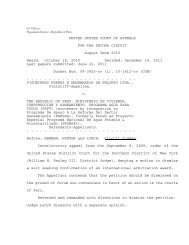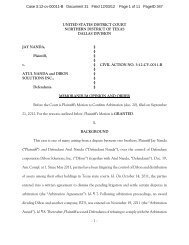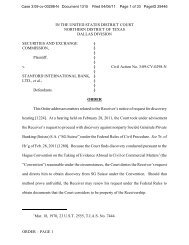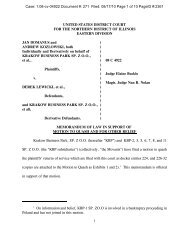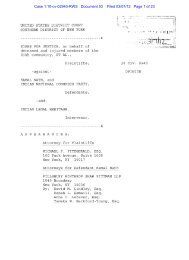Sabeniano v. Citibank N.A. New York (S.D.N.Y. ... - Letters Blogatory
Sabeniano v. Citibank N.A. New York (S.D.N.Y. ... - Letters Blogatory
Sabeniano v. Citibank N.A. New York (S.D.N.Y. ... - Letters Blogatory
Create successful ePaper yourself
Turn your PDF publications into a flip-book with our unique Google optimized e-Paper software.
Case 1:12-cv-01928-ALC-DCF Document 25 Filed 03/20/13 Page 11 of 13<br />
Plaintiff makes no argument as to why comity should not extend to the decisions<br />
provided by Defendant. To the contrary, she argues for enforcement of other Philippine court<br />
judgments. See supra Part III.B. There is no apparent reason why the principles ofcomity or the<br />
<strong>New</strong> <strong>York</strong> statute would dictate otherwise. As such, the October 16, 2006 decision and the three<br />
Resolutions of the Philippine Supreme Court dated February 4,2008, June 18,2008, and August<br />
27,2008 are recognized as valid and binding on the parties.<br />
11. Res Judicata and Collateral Estoppel<br />
"Under the doctrine of res judicata, '[a] final judgment on the merits of an action<br />
precludes the parties or their privies from relitigating issues that were or could have been raised<br />
in that action.'" Saud v. Bank of <strong>New</strong> <strong>York</strong>, 929 F.2d 916, 918-19 (2d Cir. 1991) (quoting<br />
Federated Dep't Stores, Inc. v. Moitie, 452 U.S. 394, 398 (1981)). It is undisputed that the<br />
October 16,2006 order of the Philippine Supreme Court was a final judgment on the merits. It<br />
was issued subsequent to the trial court and intermediate appellate court's substantive decisions,<br />
and Plaintiff and Defendant were parties to the judgment.<br />
In determining whether the claims resolved by the Philippine judgment should be given<br />
preclusive effect in this action, United Technologies sets forth a series of factors to guide the<br />
district courts. Those factors include: "whether the same transaction or connected series of<br />
transactions is at issue, whether the same evidence is needed to support both claims, and whether<br />
the facts essential to the second were present in the first." N.L.R.B. v. United Techs. Corp., 706<br />
F.2d 1254, 1260 (2d Cir. 1983). All of the United Technologies factors support the application<br />
of res judicata. There are no plausible arguments that the current action involves a different<br />
transaction, evidence, or facts from those forming the claims adjudicated in the Philippine case.<br />
11



